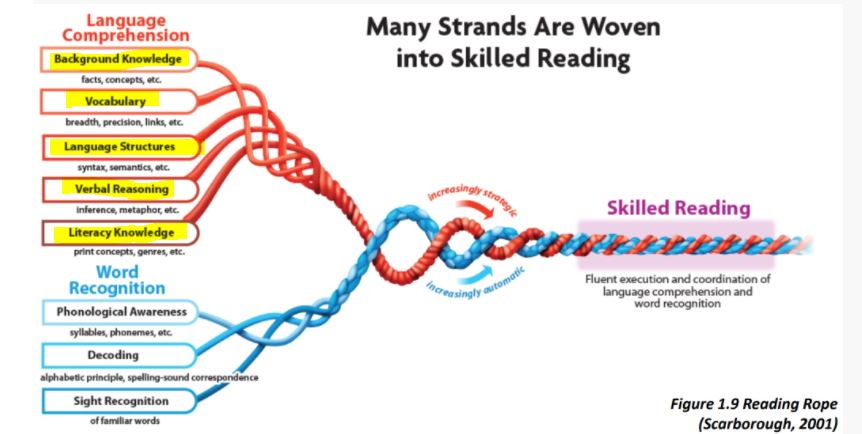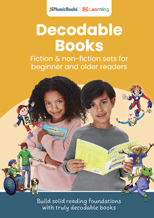Here at Phonic Books we usually discuss how to help children to learn to decode and become fluent readers. But as The Reading Rope shows (see graphic below) – decoding, or word recognition is only the first part of the story. I like the metaphor describing the impact of teaching systematic phonics: it will get novice readers first of the blocks, but it doesn’t guarantee they will finish the marathon run. What else do children need once they know how to translate the symbols on the page into words – that is, decode?
See below all the elements that contribute to skilled reading. The highlighted areas all come under ‘Language Comprehension’. These areas need to develop for a reader to become skilled.
Background knowledge is acquired through exposure to many subjects across the curriculum and from wide reading. Children who don’t read, or come from low income families often don’t have the opportunities to visit museums or experience trips to the seaside or countryside. As a result, their world knowledge will be limited. Schools must step in here and provide a rich curriculum to bridge this gap.
Vocabulary too, is acquired through more reading and through the study of words across the curriculum. Language structure, verbal reasoning and literacy knowledge are best taught through challenging texts of different genres. Here it is up to the teacher/school to introduce these texts to children in a meaningful, relevant way. It is important to aim the level of the text just right – not too inaccessible but challenging at the same time.

Teaching children to decode doesn’t guarantee that they will become life-long readers, develop the love of reading, or even academic success in secondary school. As we can see, a lot more needs to take place in the classroom for that to happen. All too often students are offered unchallenging texts that don’t engage or enrich them.
So how do we go about supporting children, but at the same time, offering them exciting, horizon-broadening texts? We want to excite and engage our students but not to lose those who struggle.
Here are 5 strategies suggested by Alex Quigley on the Confident Teacher blog that will help teachers do just that.
Thank you for this helpful post!
#skilledreaders #readingfluency #readingrope


